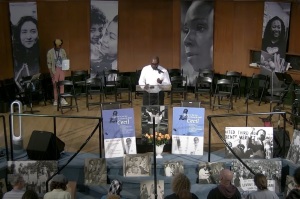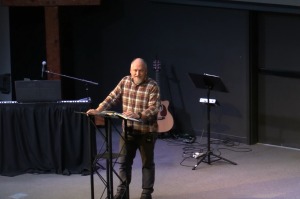A Radical Solution to Chaos
Loving Your Enemies
Over the weekend, a truck bomb in a Shiite market in Baghdad killed at least 130 people. While it was horrible, it was only one of four such attacks against Iraqi Shiites in the past three weeks.
I support the president’s plan to send in more troops to stabilize Iraq, but it’s going to take more than troops to end the cycle of outrage and retaliation. It’s going to require a radical shift in the worldview of many Muslims.
Thomas Friedman of the New York Times agrees. In a recent column, he expressed dismay at the “deafening silence with which . . . mass murders” like the one in Baghdad “are received in the Muslim world.”
He writes that the “only hope left for Iraq,” if there is one, lies not so much in a counter-insurgency strategy, but in a “a Muslim counter-nihilism strategy”—a shift in worldview that “delegitimizes the mass murder of Muslims by Muslims.” In a culture where the outrages in Iraq “[evoke] about as much reaction . . . as the weather report,” Friedman writes, “decent politics” [is] impossible.
Friedman wondered where the Islamic Martin Luther King was. Where was the man who could lead the “shift away from the focus on power and glory” and toward an emphasis on “responsibility as a community for [its] own situation”?
By way of showing the gravity of the situation, Friedman quoted the Syrian poet Ali Ahmad Said. According to Said, compared with the rest of the world, “we Arabs are in a phase of extinction,” which results, he says, from the lack of a “creative capacity” necessary to “change [one’s] world”—precisely what Christianity provides, and Islam does not.
While reading Friedman’s column, I couldn’t help but think of another part of the world where the demise of an oppressive regime was supposed to have led to bloodshed and chaos: South Africa. South African blacks endured dreadful humiliation and brutality at the hands of the white minority.
Yet, not only was the transition from minority to majority rule relatively peaceful, there was no mass settling of scores either. Instead, South Africa created a “Truth and Reconciliation Commission” where, in exchange for confessing their offenses, people would receive amnesty—not only amnesty but also, in many cases, actual forgiveness from their victims.
Not coincidentally, the commission was headed by Archbishop Desmond Tutu. Like the Civil Rights movement led by King, the commission spoke to both perpetrators and victims, the oppressors and the oppressed in a moral language shaped by their common Christian heritage. This is why appeals for reconciliation and forgiveness succeeded in South Africa.
Now, it’s true that Islam speaks of forgiveness, just as it’s true that many Christians have not lived up to Christian teaching on the subject. But forgiveness and reconciliation are absolutely essential and central to the Gospel in a way that they are not in Islam. There is no Koranic equivalent to “turn the other cheek” and “love your enemies.”
And without this Gospel understanding, any response besides “an eye for an eye” comes off as weakness. What is hampering the Islamic world and creating bloodshed is the lack of the Christian concept of forgiving and loving one’s enemies.
_________________________________________________
From BreakPoint®, February 7, 2007, Copyright 2007, Prison Fellowship Ministries. Reprinted with the permission of Prison Fellowship Ministries. All rights reserved. May not be reproduced or distributed without the express written permission of Prison Fellowship Ministries. “BreakPoint®” and “Prison Fellowship Ministries®” are registered trademarks of Prison Fellowship Ministries



























